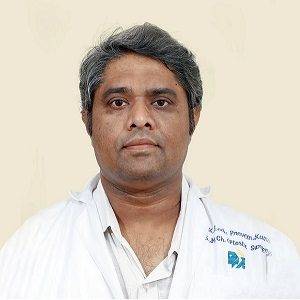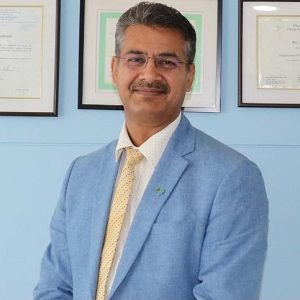Best Doctors in India for Dermabrasion
- Plastic Surgeon and Cosmetic Surgeon, Chennai, India
- Over 22 years’ experience
- Apollo Hospitals Greams Road
Profile Highlights:
- Dr. Leela Praveen Kumar is one of the top Plastic Surgeons in Chennai with more than 22 years of dedicated experience.
- The doctor is frequently visited by the patients for Breast implants, Vaser Liposuction, rhinoplasty, facelift, Breast Reduction, Bariatric Surgery, Microsurgery, Body contouring, Hand surgery, and Onco Reconstruction.
- Dr. Leela Praveen Kumar also manages a non-Surgical fat reduction procedure, known as Cryolipolysis.
- Plastic Surgeon and Cosmetic Surgeon, Chennai, India
- Over 40 years’ experience
- Apollo Hospitals Greams Road
Profile Highlights:
- Dr. Sundararajan M S is one of the best Plastic Surgeons in India, having practiced for more than 40 years.
- The doctor offers lipo filling, body contouring, non-Surgical facelift, tummy tuck, implants, etc.
- Dr. Sundarajan bagged the Best paper award in 2008 & 2013 and the other Gold Medal for his contribution to the field.
- Plastic, Aesthetic and Reconstructive Surgeon, Gurugram, India
- 25 + years’ experience
- Medanta-The Medicity, Gurgaon
Profile Highlights:
- Dr. Aditya Aggarwal is a distinguished plastic surgeon with a career spanning over 25 years, currently serving as the Vice Chairman of the Department of Plastic, Aesthetic, and Reconstructive Surgery at Medanta The Medicity.
- Dr. Aggarwal’s expertise in cosmetic and reconstructive surgery has earned him both national and international acclaim.
- Dr. Aggarwal’s medical journey began with training at the prestigious IMS BHU Varanasi and KGMC Lucknow (now KGMU), followed by advanced fellowships in Taiwan, Japan, the United Kingdom, and Germany.
Best Hospitals in India for Dermabrasion
Hospital Highlights:
- Apollo Hospitals is a private healthcare group in India, with its headquarters based in Chennai. Established in 1983 by Dr. Prathap C. Reddy, the group offers a wide range of medical treatments and services across various specialties.
- It is renowned for emphasizing innovation and utilizing cutting-edge medical technologies into patient treatment.
- Known as India’s first corporate hospital, Apollo Hospitals is often credited for pioneering the private healthcare revolution in the country.
- With clinics and hospitals located all throughout India, Apollo Hospitals is a nationwide healthcare organization. Its presence can also be found in foreign countries.
- Preventive health examinations, medical and surgical treatment, and diagnostic centres are just a few of the services that the Apollo group provides.
- The group has several centres of expertise, including Cardiac Sciences, Neurosciences, Orthopedics, Emergency Care, Cancer Care, and Organ Transplantation.
- City: Chennai, India
Hospital Highlights:
- RIMC is a multi-specialty hospital in a sprawling area of 36 acres located in Chromepet, Chennai, Tamil Nadu, India.
- The facility has 450 beds including 130 critical care beds, 9 operating rooms, modern reference laboratories and radiology services, and is conveniently located near road, rail and air transportation.
- RIMC is led and managed by world-renowned physicians committed to healthcare.
- RIMC offers the broadest range of clinical care, education, and research. The hospital offers state-of-the-art technology and modern treatment facilities designed to provide health care at an affordable cost.
- Rela Institute is driven by patient needs, comfort and confidence.
- City: New Delhi, India
Hospital Highlights:
- Fortis Hospital in Shalimar Bagh is a multi-super specialty hospital that strives to provide world-class patient care by leaving no stone unturned.
- Fortis, Shalimar Bagh, with 262 beds and a 7.34-acre footprint, provides the best level of medical care through its team of doctors, nurses, technicians, and management professionals.
- City: Bengaluru, India
Hospital Highlights:
- Established in 2007, the Apollo Hospitals Bangalore is a 300-bed multispecialty hospital situated in Bannerghatta Road, Bangalore.
- Equipped with the state-of-the-art technology, it is a leading hospital dedicated to providing healthcare needs to patients with compassion and expertise.
- It is the first hospital to have completed the highest number of Robot Assisted Heart Surgeries in India.
- Over the years, it has successfully conducted some of the rarest medical procedures such as spinal angiolipoma excision, autologous chondrocyte implantations, and tibial tuberosity shift with MPSL reconstruction.
- The Apollo Hospitals Bangalore has the reputation of performing the greatest series of airway stents in the country.
- Additionally, the hospital is known for providing comprehensive treatment in specialties such as gastroenterology, urology, gynecology, oncology, colorectal surgery, etc.
- The “The Minimal Access Surgery Centre” (MASC), one of Apollo Hospitals, Bangalore’s premier Centres of Excellence, is devoted to the use of minimally invasive surgical procedures.
- In 2013, THE WEEK-A C Nielsen, Best Hospital Survey ranked Apollo Hospitals Bangalore as the 2nd best multi-speciality hospital in Bangalore.
- City: Mumbai, India
Hospital Highlights:
- Gleneagles Global Hospital The 450-bed facility comprises of 17-stories, housing state-of-the-art infrastructure, and advanced medical care facilities.
- The hospital offers end-to-end clinical, surgical, and diagnostic services. It is equipped with a team of eminent medical professionals aided by qualified nurses and medical staff
- The Hospital offers advanced Endoscopic procedures, Hepatobiliary and Liver Surgeries, Surgical and Medical Gastroenterology, Bariatric Surgery, and Robotic surgery.
- The hospital is a center of excellence for Orthopedics, Joint Replacement, Knee Replacement, and Hip Replacement surgery.
- City: Hyderabad, India
Hospital Highlights:
- CARE Hospitals were established in the year 2000, by CARE Group.
- The multispecialty hospital has 435 beds, including 120 critical care beds, with an annual inflow of 180000 outpatients and 16,000 in-patients.
- The hospital provides specialty medical services in Cardiology, Cardiothoracic Surgery, Pediatric Cardiology, Pediatric Cardiothoracic Surgery, Neurology, Neurosurgery, Nephrology, and Urology.
- The hospital has the first dual source, 128 slice CT scanner (for high precision cardiac imaging) – the first of its kind in south India.
- The hospital offers a wide range of accommodation facilities for the convenience of its varied patient base, ranging from general wards to super deluxe rooms.
- City: Mumbai, India
Hospital Highlights:
- Fortis Hospital in Mulund is a 315-bed multi-speciality tertiary care hospital with five JCI accreditations that offers a wide variety of diagnostic and treatment services. The Fortis Hospital in Mulund delivers patient-centred treatment with cutting-edge technology, highly skilled and experienced surgeons, and paramedical staff.
- This institution houses Maharashtra’s largest multi-organ transplant centre. It is also the first heart transplant centre in western India to conduct 100 or more consecutive heart transplants in under four years. It is the only hospital in the city to have multi-organ transplants and has handled the youngest patient for angioplasty. Fortis Hospital Mulund now boasts the first advanced surgical robot in central Mumbai.
- Cardiology and heart surgery, urology, nephrology, neurosciences, orthopaedics, digestive care, emergency and critical care, and maternity care are among the services provided by the hospital.
- City: New Delhi, India
Hospital Highlights:
- Manipal Hospitals, Dwarka, is a super-specialty hospital in Dwarka, New Delhi, which is a part of Manipal Hospitals Group.
- The hospital aims to provide the best treatment on par with international standards at a fraction of the cost.
- Equipped with 380 beds, the hospital is also one of the new age hospitals which are equipped fully with state-of-the-art infrastructure, cutting-edge technology as well as the latest and advanced clinical practices. The hospital also has 13 modular Operation theatres with 118 beds which are solely meant for critical care.
- The hospital comprises internationally acclaimed doctors and highly professional and experienced hospital and medical staff who are able to provide preventive, therapeutic, and diagnostic services all under one roof.
- City: Chennai, India
Hospital Highlights:
- Located in Chennai, India, MGM Healthcare is a top multispecialty hospital that provides all medical services under one roof.
- Since its founding in 2019, MGM Healthcare has quickly become a leading national referral centre, creating several innovative flagship initiatives.
- MGM Healthcare combines next-generation medical and digital technologies to provide better patient results.
- With 12 centres of excellence, more than 400 inpatient beds, 100 intensive care unit beds, and 24/7 emergency care, MGM Healthcare leaves no chance in redefining the patient experience in Chennai.
- MGM Healthcare boasts 250+ expert doctors across 30+ departments, including Cardiology, Pulmonology, Neurology, Obstetrics & Gynaecology, and more.
- They house 12 specialized Centres of Excellence, including Neurosciences, Orthopaedics, and Multi-Organ Transplantation.
- Their team of doctors, nurses, and paramedics works together to give every patient individualized treatment.
Hospital Highlights:
- Lilavati Hospital & Research Centre is India’s premier multi-speciality tertiary care hospital and has been recognised as a global medical excellence centre.
- Lilavati Hospital & Research Centre has built an unrivalled level of trust with its patients over the years, thanks to a solid foundation that comprises cutting-edge facilities, the best medical competence, research, education, and charity endeavours.
- The hospital is quite proud of the fact that it now serves patients from all kinds of backgrounds, not just from the United States but from all around the world.
- The hospital has a total of 323 beds, one of the largest Intensive Care Units (ICUs), 12 Operation Theatres with modern amenities, over 300 consultants, and almost 1,800 personnel.
DERMABRASION
Dermabrasion is a skin-resurfacing technique that uses a rapidly rotating instrument to remove the skin’s outer layer, especially on the face. This can lead to a smoother skin growing back.
This technique helps in decreasing the appearance of fine facial lines as well as improving the look of several skin flaws, which can include acne scars, surgery scars age spots as well as wrinkles. Dermabrasion can be performed with other cosmetic procedures as well.
The procedure is usually performed in a dermatologist’s office. It is an outpatient procedure, which means you are able to go home once the treatment is over. Skin treated with this technique will be sensitive and blotchy for some weeks. In around three months, your skin tone should return to normal.
Purpose
Dermabrasion helps to remove damaged outer layers of the skin. This can expose new layers of skin which appear younger and smoother. This can help in providing you with a more youthful appearance. Dermabrasion can also help treat multiple other conditions such as sun damage, scars from an injury or surgery, fine wrinkles, age spots, etc.
It is notable that dermabrasion is one of the multiple treatments for people having these conditions. Before you opt for this procedure, it is best if you consult with your dermatologist and talk about all the treatment options that are available for your specific condition.
Some skin conditions such as inflammatory acne, radiation burns, etc. might prevent your doctor from performing this procedure. If you’ve taken medications that have a skin-thinning side effect, this can also make you unable to receive dermabrasion. This procedure is also not usually recommended if your skin tone is too dark.
Preparation
Before you undergo the procedure, it is likely that your doctor will:
Review your medical history- You will need to answer any question regarding your current and past medical conditions and any medications you’re taking or have taken recently. You also need to talk to your doctor if you have had any procedures prior to this.
Do a physical exam- Your doctor will next inspect your skin as well as the area that needs to be treated to determine the changes that are needed and see how your physical features might affect the results.
Discuss your expectations- You need to discuss with your doctor properly regarding your motivations, expectations and potential risks. Also, make sure you understand how much healing time your skin will require before it will return to normal.
Before dermabrasion, you also need to remember certain things.
Stop using certain medications- Before your procedure, your doctor might recommend not taking a few medications such as aspirin or blood thinners.
Take antiviral medication- Your doctor might prescribe an antiviral medication before and after treatment as this will help to prevent any kind of viral infection.
Stop smoking- If you smoke, your doctor might ask that you stop smoking for at least a week before and after the procedure. Smoking decreases blood flow in the skin, which slows down the healing process.
Have btx injections- You may receive them around three days before the procedure as these help most people achieve better results.
Use a retinoid cream- Your doctor may recommend a retinoid cream such as tretinoin for some weeks before treatment as it can help with healing.
Take an oral antibiotic- If you have acne, your doctor will be recommending an oral antibiotic around the time of the procedure as this can prevent a bacterial infection.
Avoid unprotected sun exposure- Too much exposure to the sun before the procedure can lead to permanent irregular pigmentation in the treated areas.
Arrange for a ride home- If you are going to be sedated or be receiving a general anesthetic during the procedure, you should arrange for a ride to take you home after the procedure.
Usually, the procedure is performed in an office procedure room or an outpatient facility. However, if you require extensive work done, you might require hospital admission.
First, you will need to wash your face before the procedure. Do not apply any kind of makeup. Wear clothes that you won’t need to pull over your head, as you will have a facial dressing after the procedure.
Procedure
The type of anesthesia you will be receiving during dermabrasion will depend on the extent of your treatment. Typically local anesthesia is used. However, certain cases can require sedation for helping you relax or feeling drowsy. Sometimes general anesthesia might also be given during the procedure.
An assistant will be holding your skin taut during your procedure. Your doctor will move a small, motorized instrument called a dermabrader across your skin.
On large patches of skin, the doctor will be using a circular dermabrader, while on smaller places such as the corners of your mouth, he/she will use one having a smaller tip. The large sections of the skin might need multiple sessions of treatment.
After the procedure, your doctor will cover your treated area with a moist dressing. This dressing is usually changed the following day during the appointment.
After the procedure
You will receive instruction to take care of your skin at home to aid your healing process.
Your doctor will let you know when you can begin cleaning the treated area on a regular basis and apply protective ointments. The instructions provided can vary depending on the extent of the procedure.
While you’re healing:
- Treated skin will become red and swollen
- A crust will form over the treated skin as it begins healing
- You are likely to feel some burning, tingling or aching
- The growth of new skin can be itchy
To relieve any pain after the procedure, you need to take prescribed pain medication or an over-the-counter pain reliever. Talk to your doctor to discuss which pain reliever might be best for you.
You can choose to remain at home while you’re healing from dermabrasion, though you will be able to resume office after two weeks. However, you need to remember to keep the treated areas away from chlorinated swimming pool water for a minimum of four weeks. Your doctor might be recommending you to avoid any kind of active sports for at least one and a half months.
Once the new skin completely covers your treated area, you can conceal any redness using cosmetics.
However, if it appears that your treated skin is getting worse and gets increasingly red, raised and itchy after it has started to heal, then you should inform your doctor. This can be a sign of scarring.
Risks and complications
Risks associated with dermabrasion are usually the same as those associated with any other surgical procedure. This includes infection, bleeding and allergic reaction to anesthesia.
There are also few risks that are specific to dermabrasion which include loss of freckles, redness, swelling, enlarged pores (usually temporary), etc.
Although it is rare, some people can also develop excessive scarring or keloids, after this procedure. In such cases, one can choose steroid medications to help in softening the scars.
Remember to follow your doctor’s advice and attend the follow-up appointment. Be gentle to your skin and avoid using any kind of harsh skin care products. Avoid sun exposure to your skin until it’s healed.















